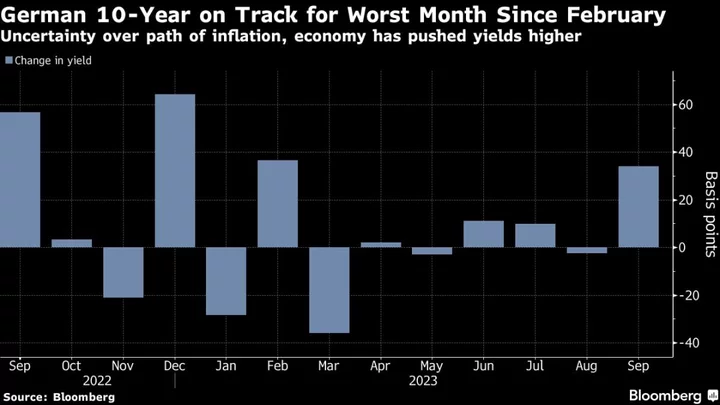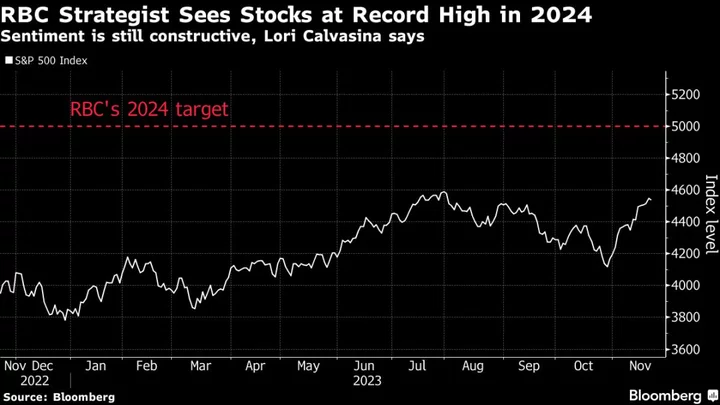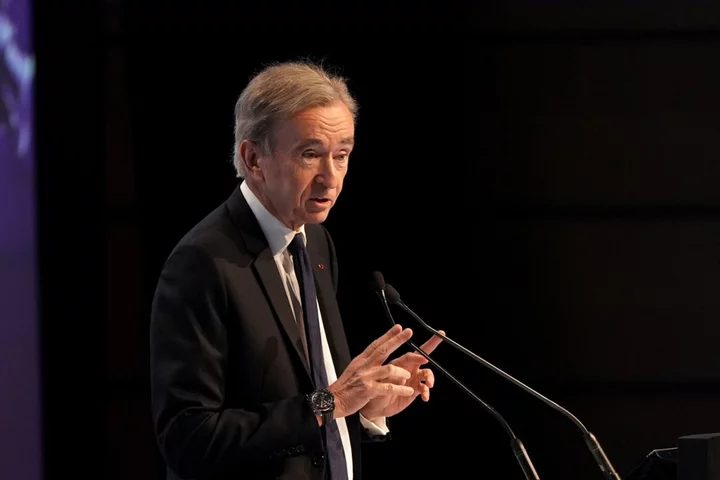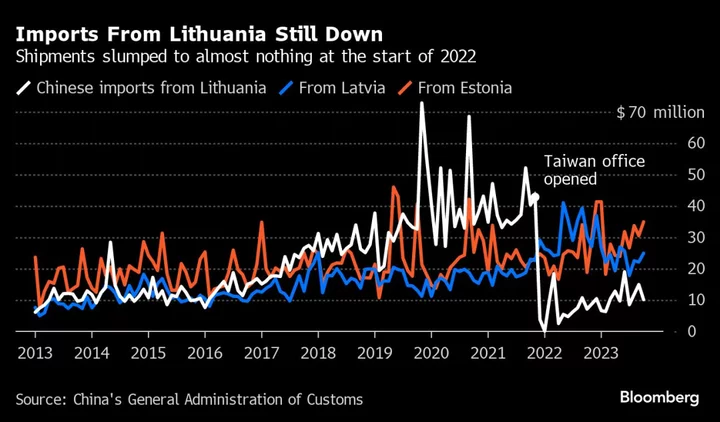The European Central Bank’s message that interest rates will stay higher for longer is finally sinking in with the bond market.
Traders are selling German 10-year government securities — the benchmark for long-term borrowing cost in Europe — at the fastest pace since February this month, driving the yield to its highest since 2011.
The moves are part of a global repricing. But they’re more alarming in Europe, where the economy is on a weaker footing than the US, and where policymakers trying to return inflation to 2% risk triggering a recession.
Data Monday signaled only a slight improvement in the gloomy outlook for businesses in Germany, the continent’s top economy.
Bank of France Governor Francois Villeroy de Galhau summed up the dangers, cautioning against steps that could derail the meager growth that remains in the euro zone, while insisting officials focus on the “persistence” of monetary policy following a 10th straight hike in the deposit rate to 4% this month.
The 10-year German bond yield climbed above 2.81% — more than 30 basis points higher this month. The euro, meanwhile, has been in locked in a downward spiral for more than two months, weighed down by mounting fears over stagflation. It was trading around $1.06, a six-month low.
Isabelle Vic-Philippe, a fund manager at Amundi SA, said she’s avoiding adding excess interest-rate risk to her portfolio given that central bankers may maintain tighter conditions for longer than markets currently expect.
“You have inflation still quite high, even if it’s decelerating,” she said. “This deceleration is something that’s occurred already in the US and in the meantime rates have increased.”
The selloff in Europe is driven in part by data out of America last week showing the economy remains far stronger than many expected after the Federal Reserve’s own aggressive hiking campaign. Two Fed officials said at least one more rate hike is possible and that borrowing costs may need to stay higher for longer.
US Treasury yields have surged in recent weeks, despite inflation making further headway back toward the Fed’s 2% target. The 10-year breached the 4.5% level on Friday, a 16-year high.
The ECB is still some distance from hitting its inflation goal, though figures due this week are likely to show a steep decline in both headline and underlying measures of consumer-price gains.
The retreat could yet be aided by the weak economic backdrop: second-quarter expansion in the 20-nation euro area was revised sharply down recently and Germany is seen contracting in the third, having endured a recession during the winter.
There’s little prospect of imminent relief from looser monetary policy. ECB President Christine Lagarde insisted the Governing Council hasn’t “decided, discussed or even pronounced cuts,” a message she reiterated on Monday.
“Our future decisions will ensure that the key ECB interest rates will be set at sufficiently restrictive levels for as long as necessary,” she told lawmakers in the European Parliament, adding policymakers “remain determined” to return inflation to the 2% target.
Read more: Lagarde Repeats ECB Rates to Stay Restrictive as Long as Needed
For markets, such talk has contributed to a step change. Long-dated bonds performed better than short-dated peers in the early stages of the tightening cycle. But if the ECB looks serious about keeping policy restrictive for longer, the incentive to hold debt that matures further in the future will quickly diminish.
The yield curve is steepening in response. The gap between two and 10-year German yields rose seven basis points on Monday. The spread between 10- and 30-year rates is now the widest since June.
“We are positive on the short-to-medium maturities” which are likely to outperform with the ECB’s deposit rate now probably on hold, said Mauro Valle, head of fixed income at Generali Investments. The shorter part of the curve should also act as a better hedge in case volatility jumps, he added.
Strategists are even starting to mull the possibility of Germany’s 10-year bond yield advancing to 3%, a level last seen in 2011.
“Looking at how long-end bonds are trading globally, it’s increasingly evident that a more dramatic deterioration in macro data may be needed to generate a sustained turnaround in yields,” said Rohan Khanna, rates strategist at Barclays.
--With assistance from Aline Oyamada.
(Updates with Lagarde’s comments from 12th paragraph, context and pricing throughout.)









